Sustainable built environment for the urban poor
- Proposed areas of implementation
- Potential areas of implementation
Project Partner
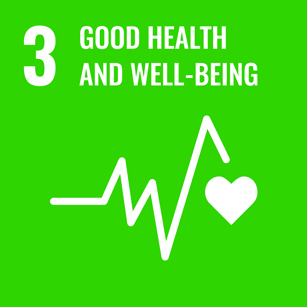
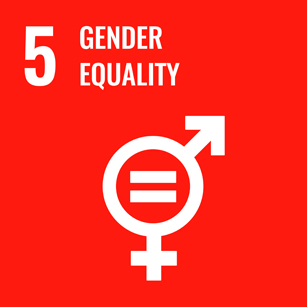
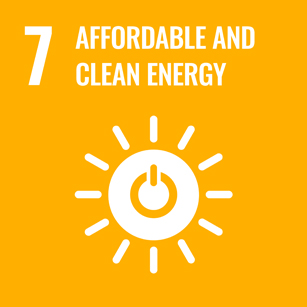
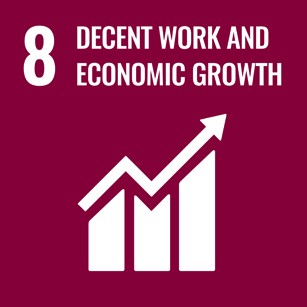
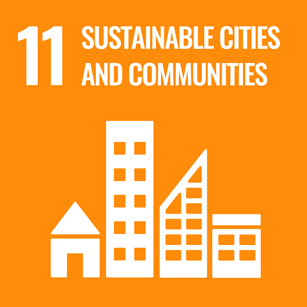
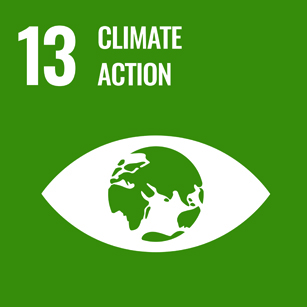
Climate change poses significant challenges to low-income slum communities in various states of India, including Delhi, Gujarat, Madhya Pradesh, Maharashtra, and Rajasthan. In the face of increasing climate-induced risks such as heatwaves and floods, this project by Mahila Housing Trust (MHT), over a period of 3 years, aims to build the resilience of these communities, particularly home-based women workers in urban slum settlements.
This involves providing them with tailored solutions encompassing the built environment, sustainable energy, technology, and financial linkages. MHT will customise the number and type of solutions based on the household requirement, which will be ascertained through a needs assessment in the project planning phase. By focusing on improving lives, livelihoods, and empowering local institutions, this project aims to reduce vulnerability and enhance resilience of urban slum communities to the impacts of climate change.
Context
Among the world’s 181 countries, India ranks as the fifth most vulnerable to the impacts of climate change. A recent report by CEEW (2021) underscores that 27 of India’s 35 states and union territories (UTs) face extreme vulnerability to hydro-meteorological disasters and their compounded effects. The IPCC’s Sixth Assessment Report (AR6) further predicts a challenging future for India, with increased dry spells, more intense rainfall exceeding 20%, and a sharp rise in heatwaves and cyclonic events, adversely affecting natural and human systems. In 2021, approximately 35% of India’s population resided in urban areas, with 7 of the world’s top 10 cities exposed to environmental risks located in India. Nearly 43 Indian cities, including Delhi (rated as the second highest risk city globally), Chennai, Agra, Kanpur, Jaipur, Lucknow, Bengaluru, and Mumbai, rank among the 100 most vulnerable cities in Asia, facing various climate-related threats such as rising sea levels, heatwaves, floods, and cyclonic storms (Environmental Risk Outlook 2021).
Climate change risks extend beyond the environment and impact socio-economic aspects, including livelihoods, incomes, and social hierarchies. Vulnerable communities, especially those with low adaptive capacities, bear the maximum brunt of these risks. In urban areas, Base of Pyramid (BoP) communities residing in slum settlements face heightened vulnerability to climate change impacts. Down to Earth data reveals that slum settlements constitute nearly 17% of India’s urban population, with slums present in 65% of Indian towns. Nine states have higher slum populations than the national average of 17%, including Andhra Pradesh (36%), Chhattisgarh (32%), Madhya Pradesh (28%), Maharashtra (23%) and Odisha (22%), with Madhya Pradesh and Maharashtra being two of the proposed states where MHT can deploy the project. In other proposed states for intervention, the percentages of slum populations as part of the urban population were as follows—Uttar Pradesh 14%, Rajasthan 12%, Delhi 11%, Gujarat 6%, Jharkhand 5%11. However, these statistics must be read carefully, as the government never notifies many communities exhibiting distinctly slum-like characteristics; Delhi, or example, has not notified any new slums since 1994.
Urban slum communities are already burdened with various challenges, including inadequate infrastructure, limited access to basic services, occupational hazards, financial vulnerability, and socio-political marginalization. The additional pressures of climate-related issues such as heatwaves, water scarcity, vector-borne diseases, air pollution, and floods further compound these hardships. These communities, situated at the intersection of multiple vulnerabilities and marginalisation, struggle to adapt to climate change’s impacts, leading to ” slow but potent” disaster scenarios. Unfortunately, as urbanisation and climate change continue to accelerate, slum dwellers will bear the heaviest burden of the adverse consequences of both phenomena.
Women and children in urban slums are particularly vulnerable to these risks. Women bear the burden of household responsibilities and often spend hours in poorly ventilated spaces, using low-quality lighting and cooking solutions that lead to physical ailments like asthma and allergies. They are also at a higher risk of vector-borne diseases such as dengue and malaria due to stagnant water in the area. Gender inequalities further exacerbate the situation, limiting women’s access to resources, decision-making power, and mobility. Many women, including those in slums, work from home on contractual terms, and climate change-related events like heatwaves, floods, and cyclones are expected to reduce their working hours, productivity, and overall engagement in the labor force while increasing mental health concerns.
Given this, the project’s primary objective is to enhance the resilience of urban slum communities to climate risks while minimising asset loss and preserving productive employment opportunities. To achieve this, MHT adopts a targeted approach, providing solutions that encompass improvements in built environments, clean energy, and technology interventions, as well as facilitating financial access for households to benefit from these solutions. Furthermore, the project empowers institutions for the poor through women-led community action groups (CAGs). Although the project aims to benefit all household members, women, who dedicate significant time to household activities (both paid and unpaid), are the primary focus, as the solutions implemented will have specific impacts and benefits for them.

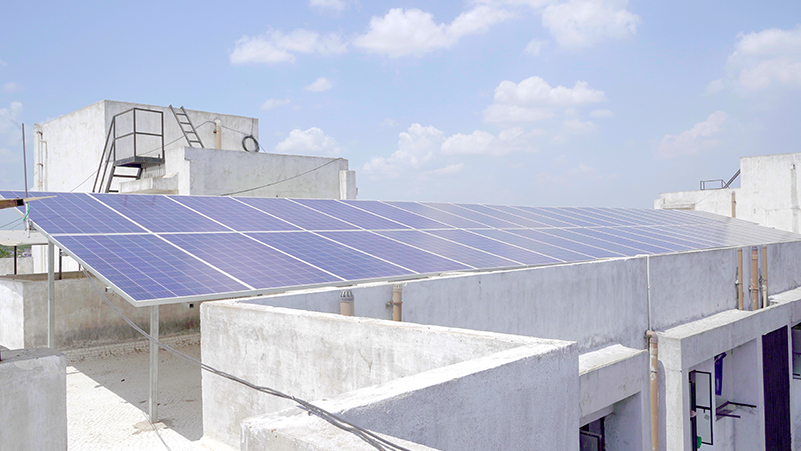


Problem statement
Climate change poses unprecedented challenges to the urban poor, who have limited resources and face multiple deprivations. Many urban slum communities live in dilapidated makeshift housing, lacking proper ventilation and protection from extreme weather events like storms and floods. Women in slum settlements play a crucial role in safeguarding their families’ physical and financial well-being. They are almost always engaged in labour, whether unpaid or paid. Regarding the former, women shoulder almost all domestic responsibilities, including childcare, cooking, and caring for older people. Spending hours every day in poorly ventilated spaces, and with limited access to piped gas and LPG cylinder services, women often cook using chulhas and biomass, which cause a host of respiratory health issues. In terms of paid work, women typically engage in self-employment or contractual arrangements with different employers, utilising their homes, often one-room tenements, as both living spaces and workplaces. They engage in activities such as sewing clothes, making kites, rolling beedis, and preparing food, which they then sell outside their homes.
Therefore, while all feel the impacts of climate change, women face the brunt of it. Limited access to vital resources like land, credit, and decision-making structures hampers women’s ability to adapt to the effects of climate change. Furthermore, women often undertake the responsibility for crucial household tasks such as water supply, cooking energy, and food security, which are directly affected by climate change. Compounded by limited mobility and socio-cultural norms, women also face barriers in migrating or seeking refuge during disasters, intensifying their vulnerability. For example, most houses in urban slums do not have access to piped water, so women need to walk and wait at a common tap to fetch water; an increase in water scarcity under a climate change scenario will increase this burden. Subsequent water storage in unsanitary conditions will lead to the spreading of waterborne diseases. Similarly, with increases in torrential rain and poor drainage come large increases in diseases such as dengue and chikungunya as well, which women are more susceptible to as they spend most of their time at home. Floods and heat waves also make it impossible for women to work for months at a time, leaving their families financially insecure. It has also been found that stressors brought on by climate change may lead to increased domestic abuse and sleep deprivation among women in slums; this corroborates research by Sethuraman (2014), who points to increased mental health concerns of women in urban slums.
Given this, MHT champions a community-based resilience model that is women-led, integrated, and focuses on innovative communication strategies to promote a culture of resilience. The focus is on providing solutions to combat four climatic stressors—heat extremes, flooding, deteriorating water quality, and vector-borne diseases—impacting the urban poor, particularly women. Household-level solutions include white paints to reflect the sun off rooftops, modular roofs to aid in the reduction of indoor temperatures, sprinkler taps that allow residents greater control of their water use, as well as community-level interventions such as water meters, which allow community members to track their water use. Therefore, MHT supports families to make climate-resilient investments by demonstrating solutions as well as offering financial linkages to ensure accessibility to and affordability for the same.
Goals and objectives
The project aims to enhance the resilience of the urban poor, with a particular focus on women in slum settlements, to withstand the effects of climate change. This will be achieved through various strategies such as improving the built environment, advocating for sustainable energy solutions, facilitating financial access, enhancing the adaptive capacities of institutions serving people experiencing poverty, and promoting technology to address climate-related challenges.
Specific objectives of the project include:
Making communities more resilient to climate stressors by improving home layouts, increasing room ventilation and lighting, using green materials, and designing workspaces to suit the activities undertaken by women workers;
Promoting energy efficient and renewable energy solutions in households with high energy use for livelihoods, as well as train women residing in slums as energy auditors for the local community;
Piloting and scaling market-based solutions for climate stressors in slums, which will be undertaken through action research such as assessing infrastructure requirements for urban slum communities and connecting them to vendors providing technical solutions;
Aiding communities in accessing financial and credit linkages for implementing the identified resilience solutions in their households (and workspaces), and
Empowering women by enhancing their productivity will lead to better financial and health outcomes, thereby improving the quality of lives of themselves and their family members.
About the organisation
The Mahila Housing Trust (MHT) is improving urban built environments in poor communities through collective action. Since our establishment in 1994, we have mobilised women to exercise their civic rights and empowered them to take charge of their habitat improvement process. By forging unique relationships with poor communities and local governments, we have advanced access to basic services, promoted climate resilience, and deepened participatory governance.
MHT works in cities as well as rural areas across 9 states in India, to reach services to the poor and make their voices heard in city level planning and governance processes. MHT’s work has been recognized nationally and internationally and has received numerous awards such as the Ashden Award for Cooling in Informal Settlements, United Nations Global Climate Action Award for Women’s Action Towards Climate Resilience for Urban Poor in South Asia, and United Nations Sasakawa Award for Disaster Risk Reduction, among many others.






